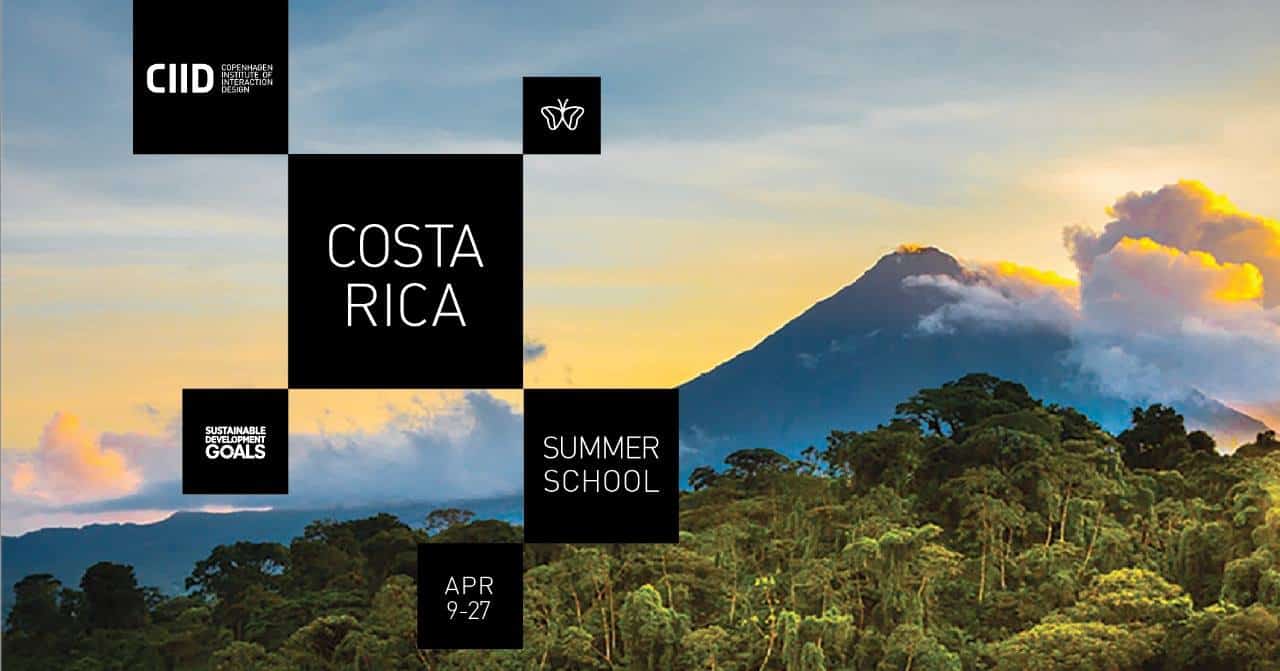It has been eight years since the first edition of the International Design Festival (FID), created by designers Paco Cervilla and Alfredo Enciso to position Costa Rica as an international creative hub, opened its doors.
Yesterday, however, the festival morphed into something new: the traditional three-day event became an educational platform offered throughout the month of April in partnership with the Copenhagen Institute of Interaction Design (CIID).
The FID’s partnership with the Copenhagen Institute began with a conversation between Cervilla and Stiven Kerestegian, head of innovation and strategy at the CIID. They started by talking about their children playing together at the beach, and ended up discussing the generation of an educational platform that provides students with tools to create solutions for complex problems through creative processes.
“When I was at Denmark at the Creative Business Cup about three years ago, when we won the Yo Emprendedor prize from Mesoamerica, one of the judges was Stiven Kerestegian, LEGO’s Innovation Director [at the time]… I invited him to come here. And he came,” Cervilla told The Tico Times. “It was fantastic. We became very good friends. We began thinking throughout the year about what we could do.”
After various conversations, more stakeholders began joining the project. These include the Costa Rican Investment Promotion Agency (CINDE), the Inter-American Development Bank (BID), the Public Education Ministry (MEP), the BAC bank, Mesoamérica, and the Costa Rica USA Foundation for Cooperation (CRUSA), providing scholarships for students to attend the first CIID Summer School held this year in Costa Rica.
How the International Design Festival boosts San Jose’s economy
“The stakeholders share a same common vision of how design really can transform a region, how it can be a tool and not necessarily an end… For quite a while, I’d been asking myself why the FID is important,” Cervilla said.
That question led Cervilla to think about how the FID could support innovation throughout the year rather than at one annual event.
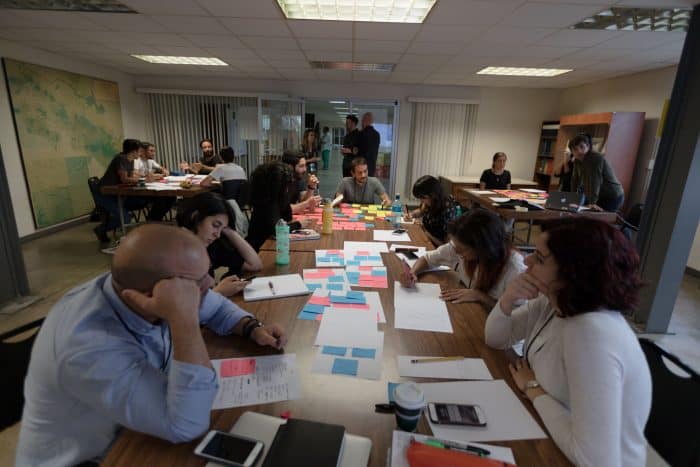
“All the people who have been involved, we’ve rolled up our sleeves, because we’re basically prototyping. No one knows how this is done,” says Cervilla. “It’s the first time in which the people from the CIID step out of Denmark to get into the Latin American context.”
According to Cervilla, the team from Copenhagen was drawn to Costa Rica because of the energy and potential they observed in this country in terms of innovation.
Everyone involved in the creation of this new Summer School program are seeking to experiment with new problem-solving approaches that have not yet been explored.
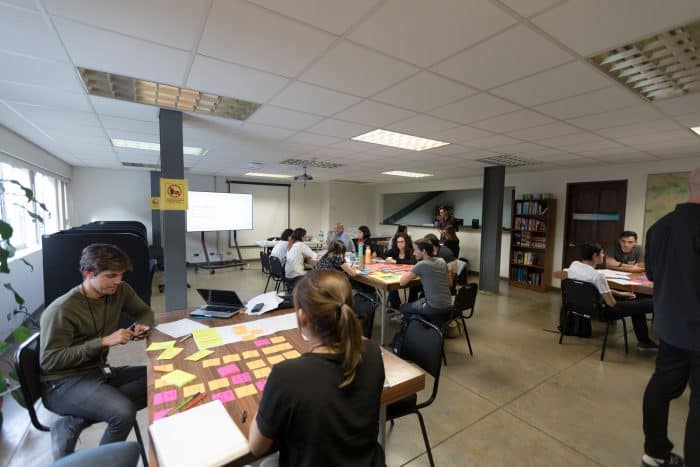
The event’s sponsors have joined forces to offer scholarships for teachers, 20 public high school students, startups, and NGOs to participate in the course, taking place at the Omar Dengo Foundation in San José through April 27.
“I believe that any thing that’s designed in this moment must solve problems, and must adapt to the context under the topics of sustainability. Definitely the CIID is the future of thinking for design… [including] for businesses and governments,” Cervilla told The Tico Times. “What would happen if we can have [design thinking] processes inside of [public] institutions is that they’re required to be well designed to improve mobility, the environment, education.”
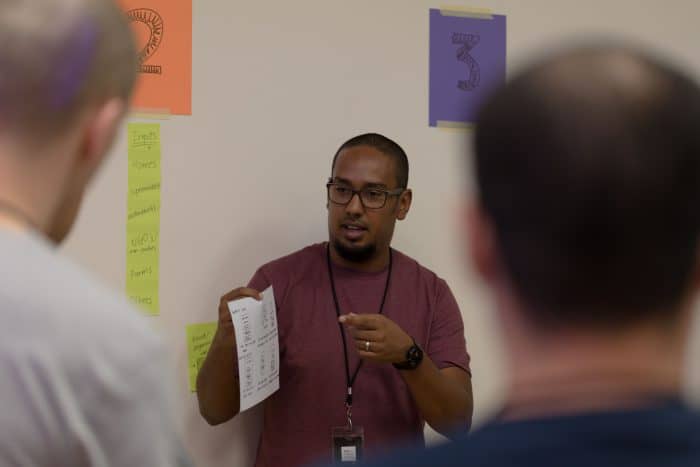
The CIID methodologies to be applied in Costa Rica are focused on design, technology and biodiversity.
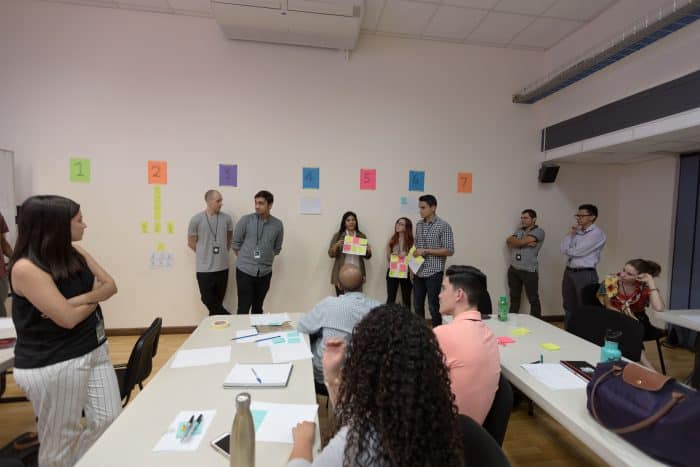
International Design Festival: How to organize a massive, successful event in Costa Rica
The essence of this new face for the FID with the CIID is to empower others through education for the country’s development and improvement.
“What the FID has taught me is that when you give people access to education and global-level education, things change. The key to any transformational change in society resides in education… making it [possible] for people to get inspired to take actions and to improve the context they’re in,” Cervilla told The Tico Times.
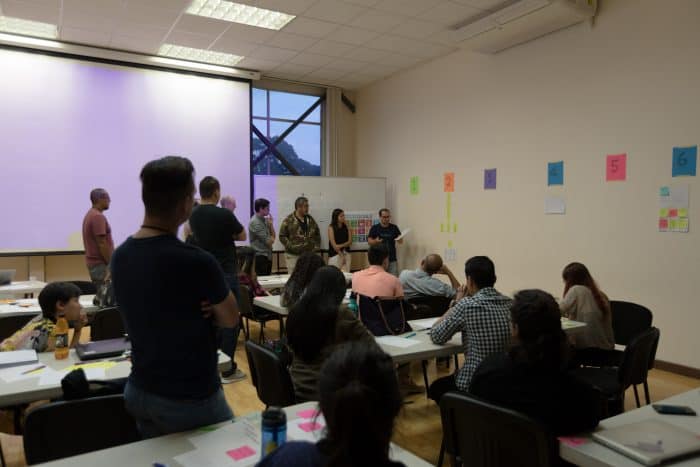
To all this, Cervilla’s main motivation to continue working hard on creating innovative educational options for the country is as simple as making a better place for his children and the deep love for Costa Rica.
“I have a very profound love for my country. I feel very proud of what we are, what we represent and the enormous potential we have,” Cervilla said. “I have to create exchange, inspiration and knowledge spaces for educational accessibility.”
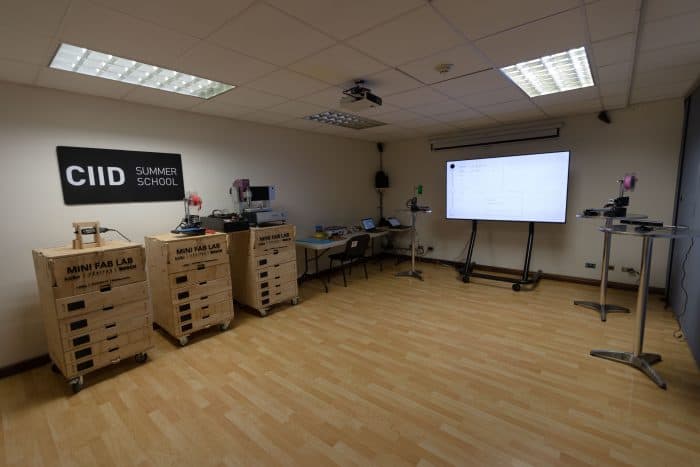
The CIID Summer School began on April 9 and will end on April 27. It is currently taking place at the Omar Dengo Foundation in San Pedro, east of San José. As part of the Summer School, the CIID is providing Lightning Talks, a format in which the CIID professors share a free 10-minute conference every Tuesday in April. For more information visit the FID’s Facebook or webpage.

